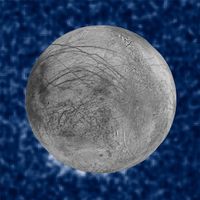SGU Episode 586
| This episode needs: transcription, proofreading, formatting, links, 'Today I Learned' list, categories, segment redirects. Please help out by contributing! |
How to Contribute |
| SGU Episode 586 |
|---|
| October 1st 2016 |
 |
| (brief caption for the episode icon) |
| Skeptical Rogues |
| S: Steven Novella |
B: Bob Novella |
C: Cara Santa Maria |
J: Jay Novella |
E: Evan Bernstein |
| Quote of the Week |
Cutting off fundamental curiosity-driven science is like eating the seed corn. We may have a little more to eat next winter, but what will we plant so we and our children will have enough to get through the winters to come? |
| Links |
| Download Podcast |
| Show Notes |
| Forum Discussion |
Introduction
- Steve has solar panels on his roof now
- Possibly the longest intro segment ever
You're listening to the Skeptics' Guide to the Universe, your escape to reality.
What's the Word (16:18)
- Apophenia
S: Cara, we're gonna start with a What's the Word this week.
C: Awesome. So the word this week was suggested by a listener named Steel. What a cool name. His first name is Steel,
S: Blue Steel?
C: from Indiana. I know, right? So, Steel, thank you for sending this in. And the word is apophenia. Have you guys referenced this word a lot on the show, before I (inaudible due to cross talk 16:37)
B: Not a lot. A few times.
C: It's a good
S: We have mentioned it, we have mentioned it, yeah.
C: It's a good one. So, according to the Merriam-Webster Medical Dictionary, apophenia is the tendency to perceive a connection or meaningful pattern between unrelated or random things, such as objects or ideas. And they cited an August 30th, 2004 reference from the Post and Courier in Chareston, South Carolina, as a good usage.
”The promise of the data age is that the truth really is in there, somewhere. But our age has a curse too, apophenia, the tendency to see patterns that may or may not exist.”
It's not quite synonymous with paradolia, which is actually kind of a type of apophenia.
S: Right
B: Right
C: That one specifically refers to finding patterns in visual data, like seeing faces where there are none.
S: It's more sensory data, Cara.
C: Sensory data, that's true.
S: There could be visual, or it could be
C: Or sounds.
S: hearing. Whereas apophenia could be just ideas. You know, it's not
C: Yeah
S: just sensory data, yeah.
C: That's true. In paradolia, you might hear a sound, or like we've talked about a lot, like, the phantom ring tone, if you hear something that sort of relates to that. You might hear your name in the noise of a crowded room, or something like that. But with apophenia, definitely, ideas are often connected. And further definitions in other dictionaries actually clarify that it could be a normal phenomenon of everyday life – a lot of people experience it – or it can refer to a clinical symptom, such as in schitzophrenia, when apparent connections and patterns may feel oppressive or ominous, and kind of persecutory.
So, that sort of lends itself to the etymology. It was first coined in German. Its German form, from psychiatrist Clause Konrad in '58. He was describing the onset of a psychotic episode in patients with schitzophrenia. The roots of the term are apo, meaning away, and phenon, meaning to show. Those are both Greek roots. So, think of it this way: An apophenie is in contrast to epiphany.
B: Whoa!
C: Because the latter - yeah, right? The latter is rooted in reality. You have an epiphany when two things connect meaningfully, and you're like, “Oh my god! I get it!” Whereas an apophenie is not rooted in reality.
J: Oh!
C: It's when two things seem to connect, but they don't. Apophenia.
B: Oh, I love that word.
C: Right? It's so good.
B: I gotta use it. I gotta use it.
C: So good.
S: Yeah, it's a cool word.
C: Yeah. Good for the skeptic toolkit, for sure.
S: Yeah, I was just gonna say that. Put that one in your toolkit.
News Items
Europa Venting (19:07)
Piezoelectric Roads (27:08)
(Commercial at 36:42)
Unhackable (37:18)
Change in Astrological Sign (47:46)
Who's That Noisy (56:21)
- Answer to last week: Cochlear Implant
Science or Fiction (1:00:47)
Item #1: A recent study of the cosmic microwave background reveals, for the first time, evidence that the universe has a slight spin. Item #2: The World Health Organization recently declared that measles has been eliminated in the entirety of the Americas. Item #3: A recently published study demonstrates that riding a roller coaster can help remove kidney stones.
Skeptical Quote of the Week (1:22:04)
"Cutting off fundamental curiosity-driven science is like eating the seed corn. We may have a little more to eat next winter, but what will we plant so we and our children will have enough to get through the winters to come?" - Carl Sagan
S: The Skeptics' Guide to the Universe is produced by SGU Productions, dedicated to promoting science and critical thinking. For more information on this and other episodes, please visit our website at theskepticsguide.org, where you will find the show notes as well as links to our blogs, videos, online forum, and other content. You can send us feedback or questions to info@theskepticsguide.org. Also, please consider supporting the SGU by visiting the store page on our website, where you will find merchandise, premium content, and subscription information. Our listeners are what make SGU possible.
References

|